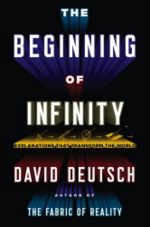Difference between revisions of "Books and further reading"
| Line 31: | Line 31: | ||
* [http://catb.org/~esr/writings/homesteading/cathedral-bazaar/ The Cathedral and the Bazaar] - [http://www.catb.org/~esr/ Eric Steven Raymond] | * [http://catb.org/~esr/writings/homesteading/cathedral-bazaar/ The Cathedral and the Bazaar] - [http://www.catb.org/~esr/ Eric Steven Raymond] | ||
* [http://open-advice.org/ Open Advice - FOSS: What We Wish We Had Known When We Started] - advice from 42 prominent open-source contributors | * [http://open-advice.org/ Open Advice - FOSS: What We Wish We Had Known When We Started] - advice from 42 prominent open-source contributors | ||
| + | * [http://thesis.erikdebruijn.nl/master/MScThesis-ErikDeBruijn-2010.pdf On the viability of the open source development model for the design of physical objects: Lessons learned from the RepRap Project] - [http://blog.erikdebruijn.nl/ Erik de Bruijn] | ||
Revision as of 23:28, 29 April 2012
| << Page in early stages >> |
|---|
No particular order. Images too.
Perhaps should be called further reading and include web-links to other website, essays wikipedia articles etc. too.
Simply a list of interesting books that relate to some aspects of concepts described in AdCiv.
The idea is that these books would describe clearly things that are possible or general thinking that is desirable for the beneficial progress of mankind based on rational and scientific thinking.
These are books that may be interesting or useful, however please note this does not necessarily mean that AdCiv advocates all things said by any of these authors!

|
Beginning of infinity by David Deutch FRS Very interesting and well explained book covering a wide set of topics that might be loosely categorised under philosophy of science, and the unbounded nature and aspects of human progress and understanding (as well as some of the fundamental limitations). |
Unsorted
- Neil Gershenfeld
- Mining the sky
- High Frontier - Gerard O'Neill
- Engines of Creation - Eric Drexler]
- Looking Forward: Participatory Economics for the 21st Century by Michael Albert and Robin Hahnel
- Producing Open Source Software: How to Run a Successful Free Software Project
- The Art of Community: Building the New Age of Participation - Jono Bacon - freely available here
- The Cathedral and the Bazaar - Eric Steven Raymond
- Open Advice - FOSS: What We Wish We Had Known When We Started - advice from 42 prominent open-source contributors
- On the viability of the open source development model for the design of physical objects: Lessons learned from the RepRap Project - Erik de Bruijn